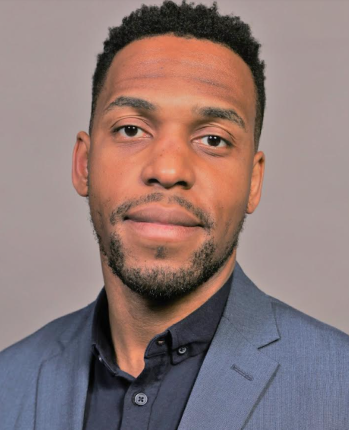
Spotlight on Dr. Steve Desir, the newest faculty member of the Pullias Center
By Julie Posselt and Steve Desir
This Spring, the Pullias Center is thrilled to have Dr. Steve Desir join its faculty. Desir is an
expert in racial equity issues in recruitment, admissions, and institutional change work. He has
been working for the last 3.5 years with the Inclusive Graduate Education Network and, for the
last two years, with the Equity in Graduate Education Consortium. Hailing from Brooklyn, Steve
was trained in economics at Penn State before earning a master’s degree at Harvard Graduate
School of Education and his doctorate from USC. Among his many talents, Desir brings an
extraordinary ability to create spaces for professionals to develop knowledge, motivation, and
skills promoting racial equity in their everyday work, policies, and practices.
You are the Director for Professional Development and Organizational Learning in the Equity in Graduate Education Consortium. What does this role entail?
In my role, I get to combine my passion for equity-minded change work with my skills in teaching and
learning. As a former higher education administrator, I always appreciated participating in and organizing training and development opportunities for staff. I am truly thankful that this role allows me to stay connected with faculty, staff, and administrators doing the hard work of advancing racial equity on their campuses.
What do you enjoy most about providing leadership for the Consortium in this area? And what are you learning from it?
I am learning a great deal about the challenges that faculty, staff and administrators encounter as they
work to build more inclusive learning environments. It will come as no surprise to anyone engaged in
facilitating change that equity work can be difficult. As the Director of Professional Development and
Organizational Learning, I am committed to creating learning spaces where faculty, staff, and
administrators can support each other as confidants and critical friends as they work to transform
institutional processes, policies, and practices that marginalize and exclude oppressed groups. I believe
that equity and justice work should be rooted in solidarity and community building. The community that we have developed with campus administrators has been the highlight of my work at USC.
As part of your Consortium work, you helped organize a recent NASEM/AAU event on mentoring and accountability. What was its purpose, and were there any takeaways?
The NASEM/AAU event was designed to bring together thought leaders to engage in discussion about
how universities can best design accountability structures and incentives to ensure equity in doctoral
student mentoring. One of the aims of the meeting was to collect information about innovations in the
mentoring and accountability space that we might share to inspire action or innovation at other
institutions. During the meeting, I learned a great deal about activities that campuses were piloting or
implementing to improve graduate student mentoring.
Many of these pilots are challenging what have become taken-for-granted norms. For instance,
campuses are challenging the apprenticeship model that has been a hallmark of doctoral education by
designing funding systems that provide bridge funding for students who are looking to switch advisors. By
providing financial support for graduate students, these graduate divisions are empowering graduate
students to pursue mentoring relationships that are most aligned with their academic and professional
goals.
This is just one brief example of the many innovative ways graduate school leaders are rethinking
mentoring and accountability. I look forward to sharing the white paper that is being developed as a
follow-up to the event with the broader Grad Ed community in the coming months.
The legal environment for race-conscious admissions and political environment in some states for DEI work are topics of growing concern. Based on your research, what advice do you have for people involved in admissions and who are leading DEI work?
I have been amazed by the way faculty in the most challenging environments leverage resources,
relationships, and people to advance equitable practice in the admission and mentoring space. The
ingenuity of these equity-minded change agents reminds me that there is much that we can do as we
navigate the current landscape for DEI work in higher education.
In addition to this advice, you can read Steve Desir’s latest publication, co-authored with Pullias
faculty Julie Posselt, a chapter (“How Are Admissions Decisions Racialized?”) in “Rethinking College Admissions: Research-based Practice and Policy”
(Harvard Education Press, 2023).